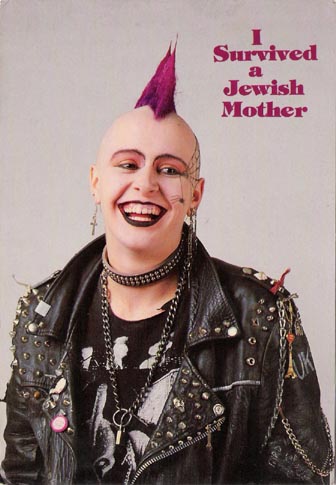Sunday, August 27, 2006
Today I went to visit my stepfather's mother. My mom and brother scheduled a visit. I haven't seen her in 10 years. It's Elul, a month of forgiveness - a month of growth and healing. I figured it's the right time to go. She's living with a nurse, more dead than alive. She barely opened her eyes. I looked at her and imagined doing a tahara on her. I know that sounds terrible, but that's where it's at.
My stepfather's sister was there. I found her to be vulgar, which both amused and repulsed me at the same time. The things coming out of her mouth shocked me, I felt assaulted. Then I thought, "Why am I judging her? It's Elul, not the time for negativity." In fact, one of my Elul resolutions is to strive to look upon people with a "good eye." The truth is, she's probably in a lot of pain.
We hung around as Grandma dozed. Then we left. I watched her daughter stroke her hair tenderly and whisper to her - thus redeeming herself in my eyes. I blessed Grandma that she should live until moshiach comes. I gave my step-aunt a Neshek brochure. I told her that Grandma was the first woman I ever saw light shabbos candles.
For that alone I will always be grateful.
 Love, Maven @
Love, Maven @ 




3 Comments:
At 4:40 PM, Anonymous said…
Anonymous said…
Maven -
Do I understand correctly that 'tahara' is a ritual mikve on a dead female? I've never heard the term before.
Thanks.
At 8:42 PM, Maven said…
Maven said…
A tahara is a cleansing and dressing ritual done for both men and women, to send them to their graves in a holy and proper manner. Men also are ritually immersed in the mikve. The root of the word "tahara" is "tahor," which means pure. The person is cleaned, immersed in a mikva, dressed in ritual shrouds, and prayed for.
At 1:32 PM, Anonymous said…
Anonymous said…
Thanks Maven.
You are a teacher.
Post a Comment
<< Home